Introduction to the Right to Financial Privacy Act (RFPA)
The Right to Financial Privacy Act (RFPA) was enacted in 1978 to protect the privacy of individuals’ financial records held by financial institutions.1,2 This law was a direct response to the Supreme Court’s decision in U.S. v. Miller (1976), which held that customers had no reasonable expectation of privacy in bank records.3 The RFPA establishes strict procedural requirements for federal government access to customer financial records, balancing investigatory needs with individual privacy rights.
- Enacted: 1978, in response to U.S. v. Miller.
- Purpose: Limit unwarranted federal access to personal financial data.
- Scope: Applies to all federal government requests for customer financial records held by financial institutions.
How NETBankAudit Protects Customer Privacy
NETBankAudit helps financial institutions comply with the Right to Financial Privacy Act by evaluating privacy practices, disclosure controls, and opt-out procedures. Through detailed audits of policies, notices, and data-sharing protocols, NETBankAudit strengthens internal safeguards and ensures customer financial information is protected in accordance with federal regulations.
Scope and Applicability of RFPA
The RFPA protects the financial privacy of customers, defined as individuals or their authorized representatives who use financial institution services. Importantly, the law excludes corporations and partnerships with six or more individuals.2,3 Only sole proprietors and partnerships with five or fewer individuals are considered “customers” under the statute.
- Covered: Individuals, sole proprietors, and partnerships with five or fewer individuals.
- Not covered: Corporations and partnerships with six or more individuals.
- Financial institutions’ role: Safeguard customer information and prevent unauthorized disclosures to government agencies.
There are also exceptions to RFPA coverage, such as records obtained by supervisory agencies during regulatory examinations or those required by other statutory mandates.2
Government Access to Financial Records: Methods and Exceptions
Federal agencies must follow specific procedures to access customer financial records. The RFPA allows access only through one of five valid methods, each with its own requirements for notice and documentation.3
Before releasing records, financial institutions must receive a written certification from the government authority confirming RFPA compliance.3 Institutions are required to document all disclosures, including the requesting authority, date, and details disclosed.
Exceptions to Standard Requirements
Certain situations allow government access without standard notice or certification, including regulatory examinations, intelligence activities, grand jury subpoenas, litigation involving the customer, and records requested in connection with government-guaranteed or insured loans (where initial notice at loan application satisfies RFPA).2,4
Notification and Customer Rights
Except for the exceptions above, government agencies must notify customers when seeking access to their financial records. The notice must include the nature of the request, the purpose for which the records are sought, and information about the customer’s right to challenge the request.2,3
- Notice: Customers are informed of the government’s intent, the specific records requested, and the reason for the request.
- Right to challenge: Customers may file a motion to quash an administrative summons or judicial subpoena, or apply to enjoin the government from obtaining their records. These actions must be taken within strict statutory deadlines, typically within 10 or 14 days of receiving notice.
- Review of disclosed information: Unless prohibited by court order, financial institutions must facilitate customer review of any information disclosed to the government.
Recordkeeping, Documentation, and Reimbursement
Financial institutions must maintain robust records of all government requests and disclosures, as well as manage reimbursement for compliance costs. This section consolidates the requirements for documentation and cost recovery.
Recordkeeping and Documentation
- Document all government requests, including the authority, date, and records disclosed.
- Maintain records of customer notifications and any legal challenges filed.
- Retain documentation for audit and regulatory review.
Cost Reimbursement
- Institutions are entitled to reimbursement for reasonable costs incurred in assembling, reproducing, and delivering records.
- Reimbursement rates and conditions are governed by the Federal Reserve Board’s Regulation S.
- Maintain detailed records of costs and submit appropriate documentation to the requesting agency.4
RFPA in the Digital Age: Cloud Data and Third-Party Risk
Modern financial institutions often store customer data in cloud-based systems or with third-party service providers. The RFPA applies to digital records just as it does to paper files. Institutions must ensure that data custodianship agreements and vendor contracts require compliance with RFPA, and that third-party risk management programs address government access and notification requirements.
- Ensure cloud providers and vendors understand and comply with RFPA obligations.
- Maintain visibility and control over all customer data, regardless of storage location.
RFPA vs. GLBA: Key Differences
The RFPA is sometimes confused with the Gramm-Leach-Bliley Act (GLBA). While both protect financial privacy, their focus and requirements differ. The table below summarizes the distinction:
Notable Enforcement Actions and Case Examples
RFPA violations can result in significant penalties for both financial institutions and government agencies. Notable cases include:
- FDIC v. American Bank: The FDIC was found to have improperly obtained customer records without proper notice, resulting in a court-ordered remedy.
- Major Bank Settlement (2018): A large U.S. bank paid damages after failing to provide timely notice to customers whose records were accessed by federal authorities.
These cases highlight the importance of strict adherence to RFPA procedures and documentation.2,3
%201%20(1).svg)
%201.svg)
THE GOLD STANDARD INCybersecurity and Regulatory Compliance
Emerging Issues: Patriot Act, FinCEN, and RFPA Limitations
Post-9/11 legislation, such as Section 314 of the USA PATRIOT Act, has introduced new exceptions and requirements for information sharing between financial institutions and government agencies. For example, FinCEN requests under Section 314(a) allow for expedited sharing of information related to terrorism or money laundering, sometimes bypassing standard RFPA notice requirements.2
Consequences of RFPA Non-Compliance
Violations of the RFPA can result in:2,3,4
- Actual damages: Customers may recover actual damages suffered as a result of unauthorized disclosures.
- Statutory penalties: $100 per violation, which can add up in cases of multiple or systemic breaches.
- Attorney’s fees and costs: Prevailing customers are entitled to recover reasonable attorney’s fees and litigation costs.
- Punitive damages: Courts may award punitive damages in cases of willful or intentional violations.
- Legal actions: Customers have up to three years from the date of the violation or its discovery to initiate legal proceedings.
- Good faith reliance: Financial institutions that act in good faith reliance on a government certification are generally protected from liability, provided they have complied with all procedural requirements.
Actionable Steps for Financial Institutions: Ensuring RFPA Compliance
- Develop and maintain comprehensive RFPA policies and procedures, including digital data and third-party risk management.
- Train all relevant staff on RFPA requirements and customer notification protocols.
- Establish clear processes for documenting and responding to government requests.
- Regularly audit compliance with RFPA and update procedures as needed.
- Maintain detailed records of all disclosures, notifications, and cost reimbursements in a consolidated compliance file.
- Consult with legal counsel on complex or ambiguous requests to ensure full compliance.
Strengthen RFPA Compliance with NETBankAudit
Ensuring compliance with the Right to Financial Privacy Act requires more than just awareness, it demands disciplined controls, effective procedures, and ongoing oversight. NETBankAudit’s General Compliance Audit includes a comprehensive Privacy Requirements Review to evaluate your institution’s adherence to federal disclosure rules, privacy notice content and timing, and opt-out mechanisms.
Our team examines how customer financial records are accessed, shared, and safeguarded. We ensure that disclosures to third parties, such as government agencies, occur only with proper legal authority, notification, and documentation. We also assess the strength of your privacy policies, the accuracy and delivery of required notices, and your institution's responsiveness to customer opt-out requests.
Through tailored evaluations and actionable reporting, NETBankAudit helps financial institutions close compliance gaps, improve internal controls, and uphold the trust of their customers. Partner with NETBankAudit to ensure your privacy compliance program meets regulatory expectations and withstands examiner scrutiny.
Sources
- Code of Federal Regulations (CFR):
Right to Financial Privacy Act, 12 U.S.C. Chapter 35. In: Code of Federal Regulations, Title 32 – National Defense, Volume 2, Part 275. Revised as of July 1, 2022. U.S. Government Publishing Office. - FDIC – Consumer Compliance Examination Manual:
Federal Deposit Insurance Corporation. VIII. Privacy — Right to Financial Privacy Act. FDIC Consumer Compliance Examination Manual, March 2022. - Federal Reserve – Compliance Handbook:
Board of Governors of the Federal Reserve System. Right to Financial Privacy Act (RFPA). In: Federal Reserve Compliance Handbook. Last updated March 2014. - Federal Register:
Department of the Treasury, Financial Crimes Enforcement Network (FinCEN). Privacy Act of 1974; System of Records. Federal Register, Vol. 83, No. 209, October 29, 2018.
.avif)

.svg)
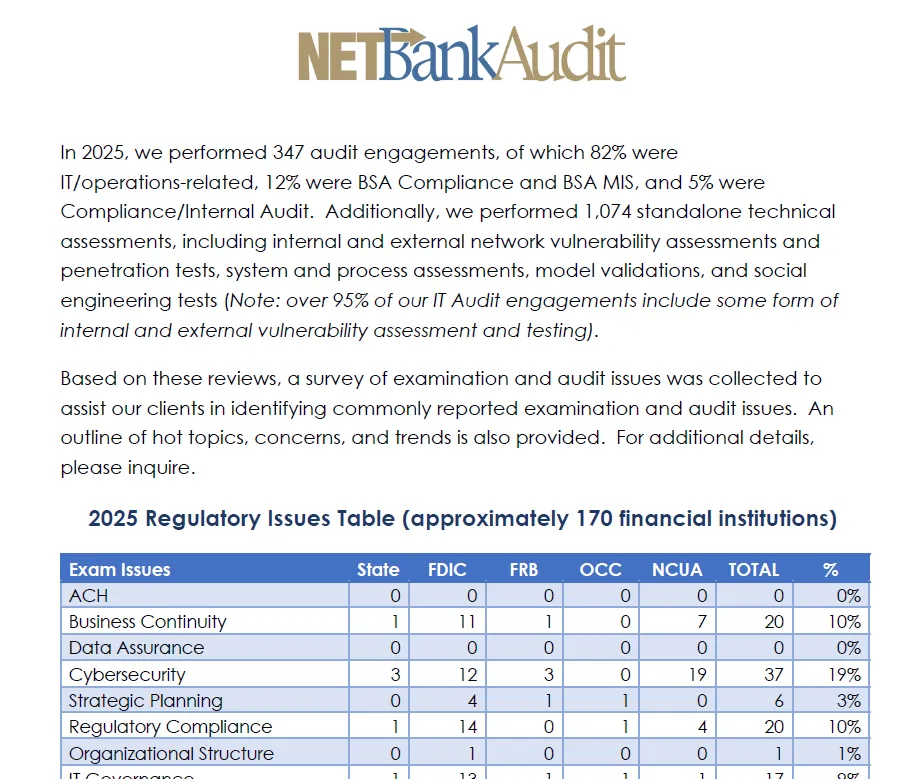

.webp)

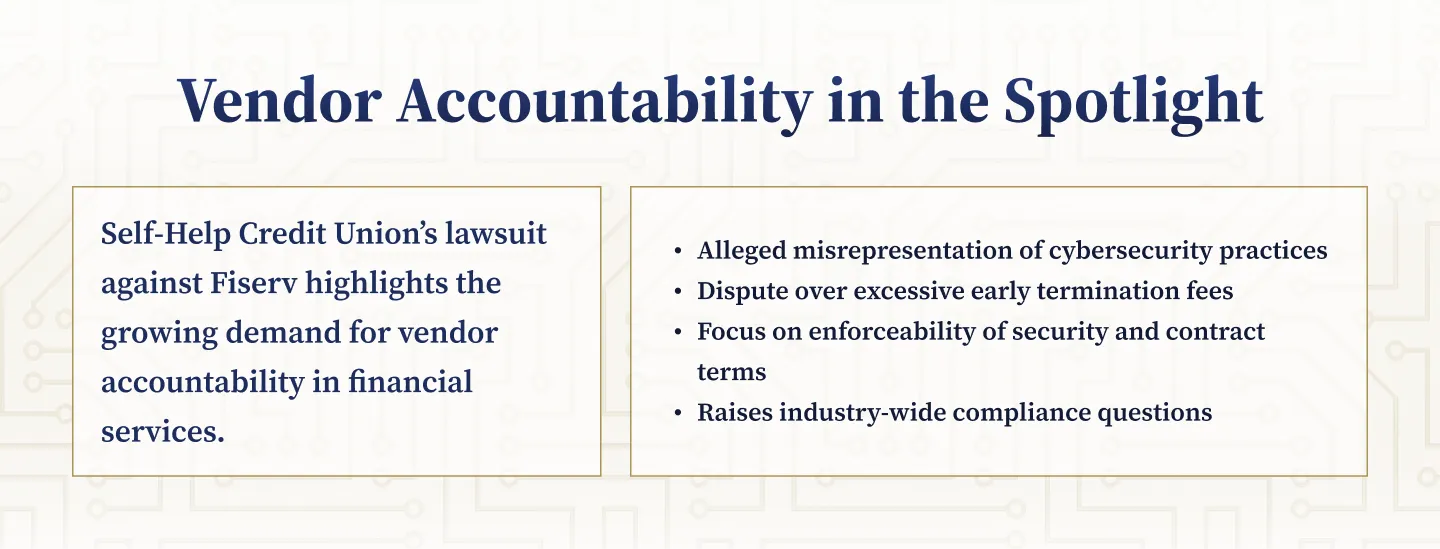
.webp)
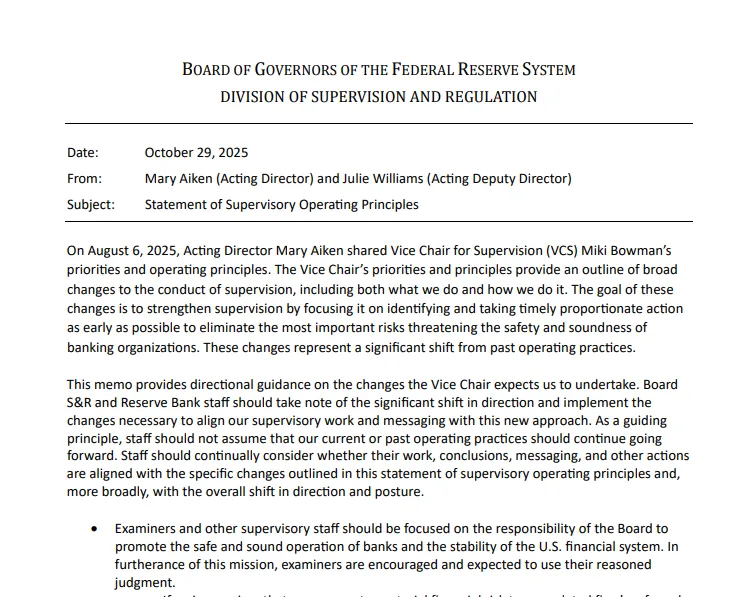
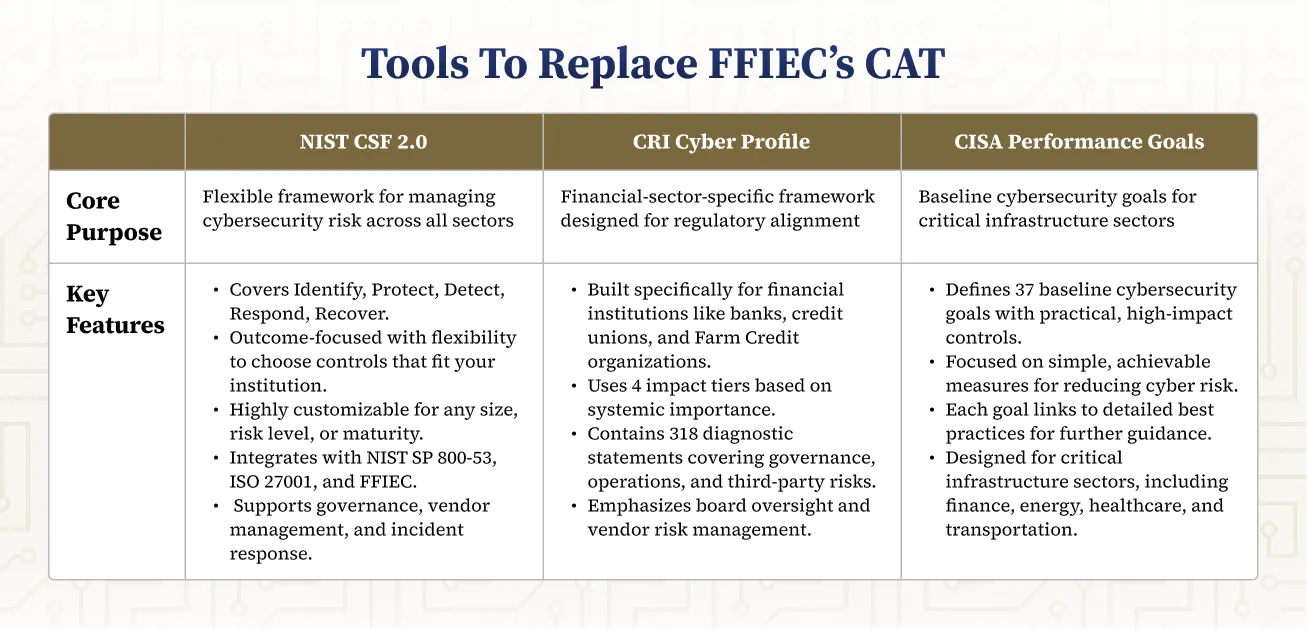
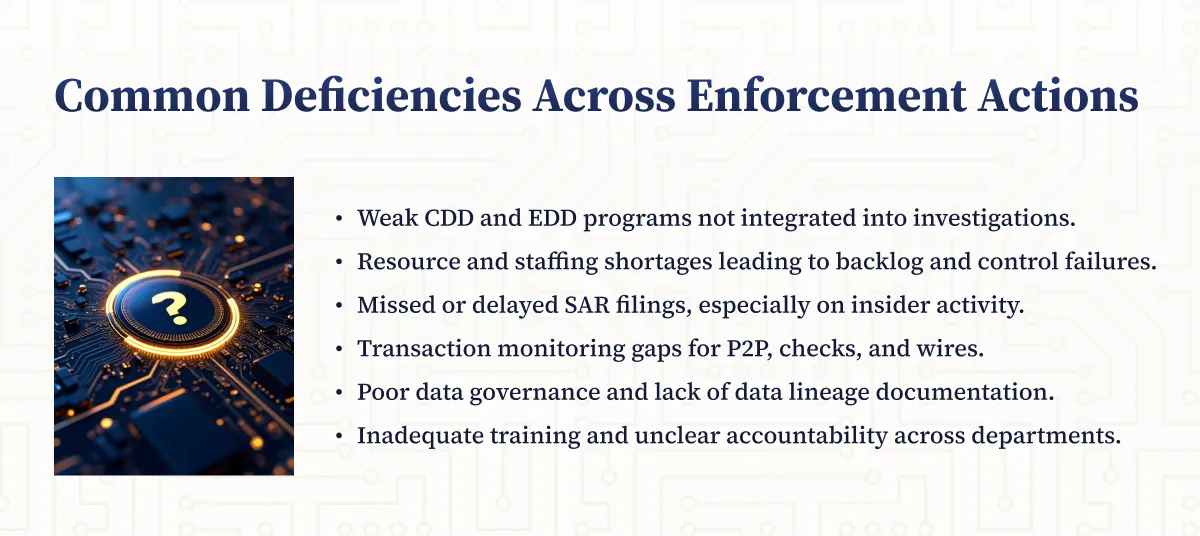
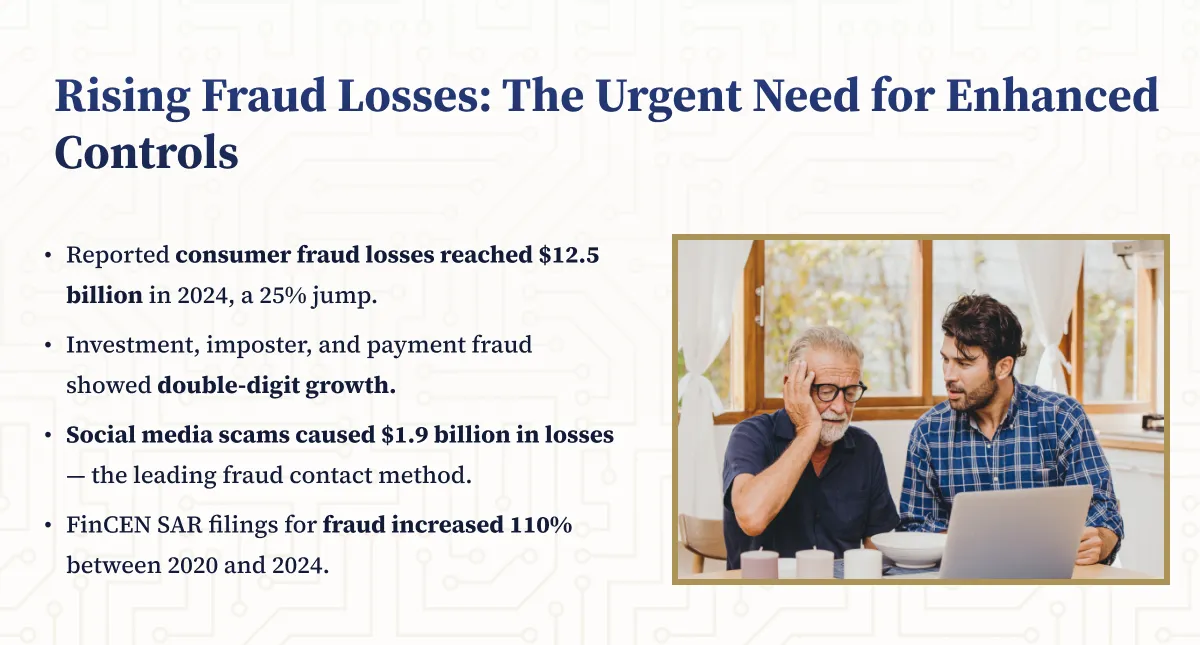
.webp)
.png)
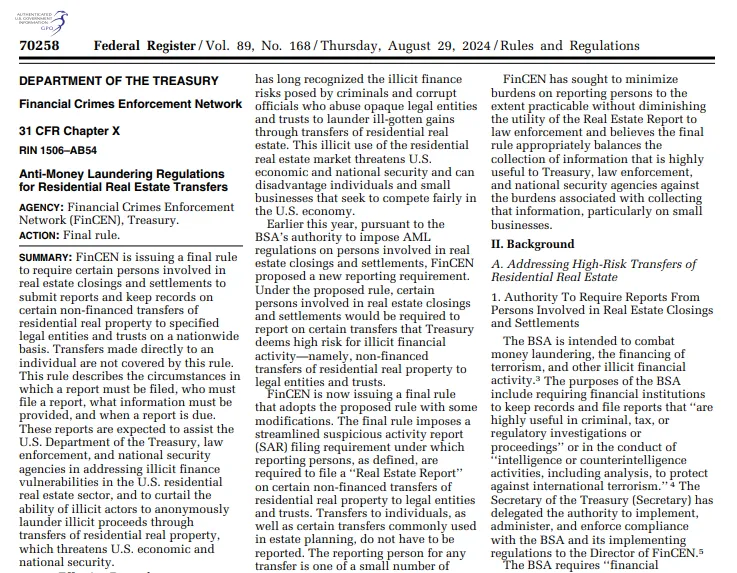
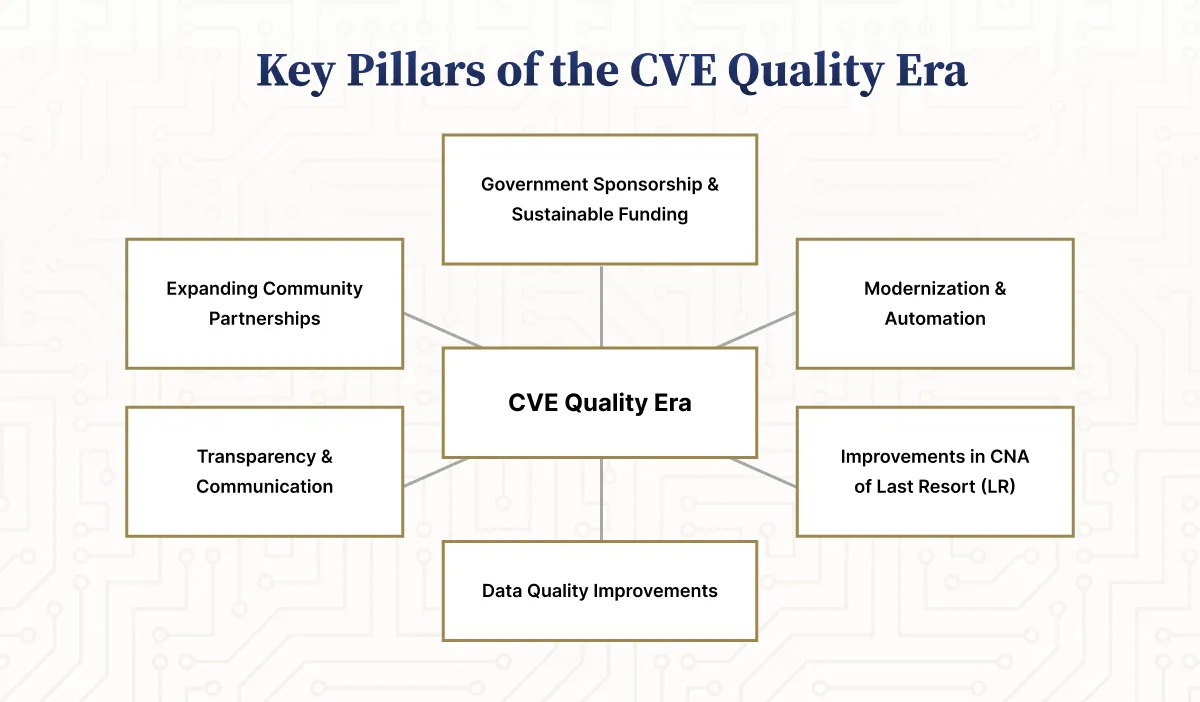
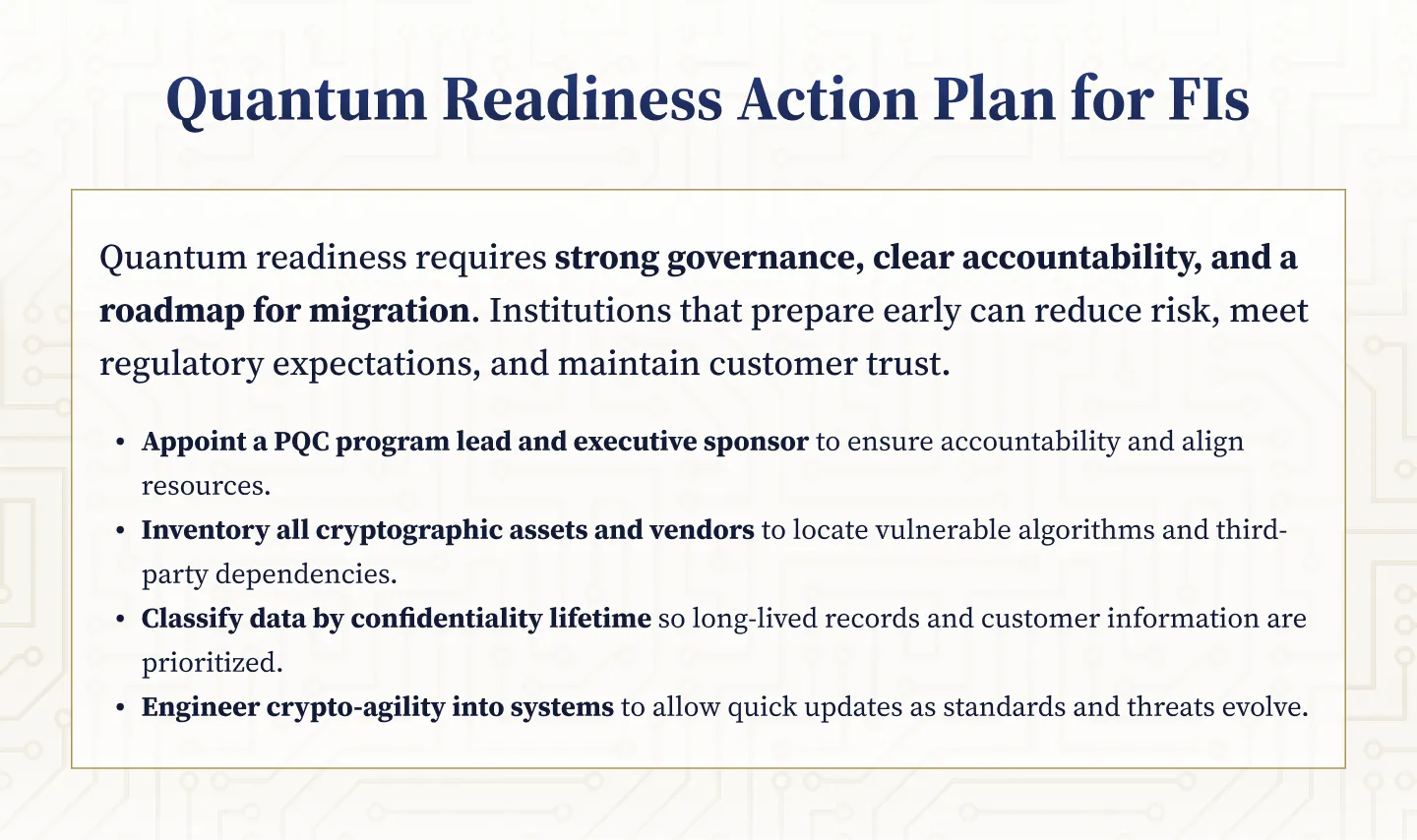
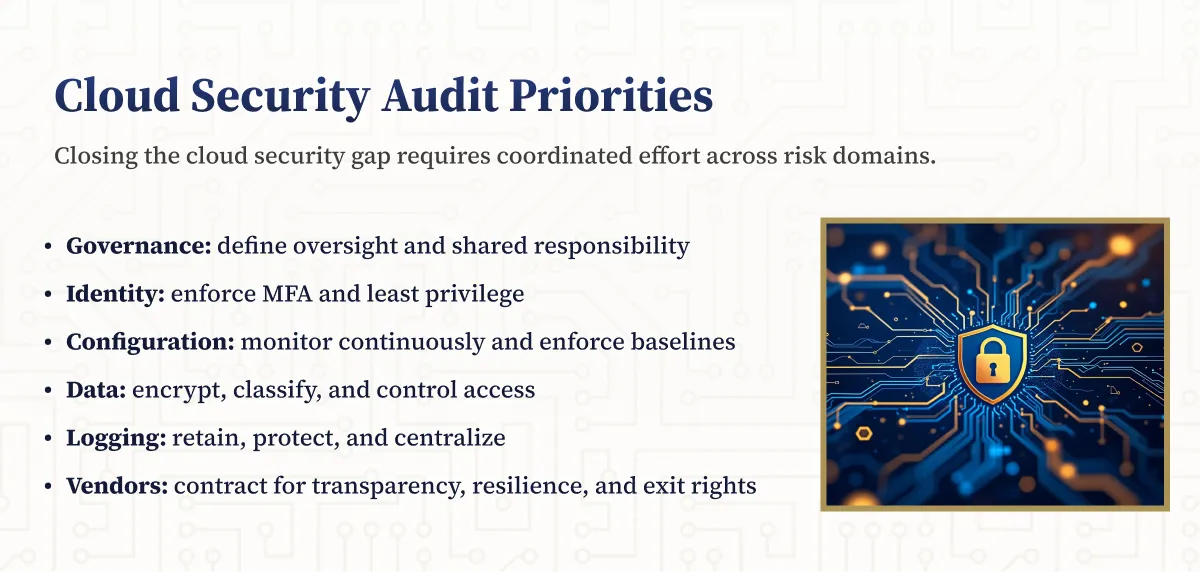
.webp)

.webp)
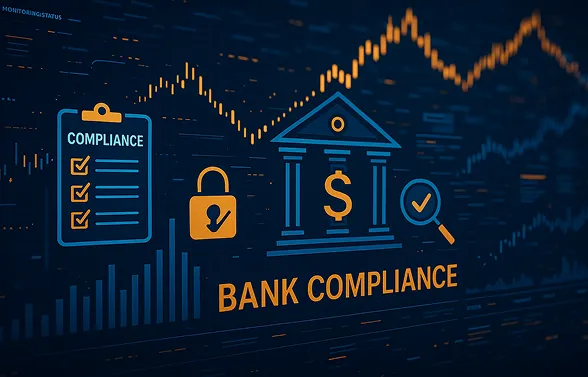










.webp)



.webp)

%201.webp)
.webp)
%20(3).webp)


.webp)


%20Works.webp)

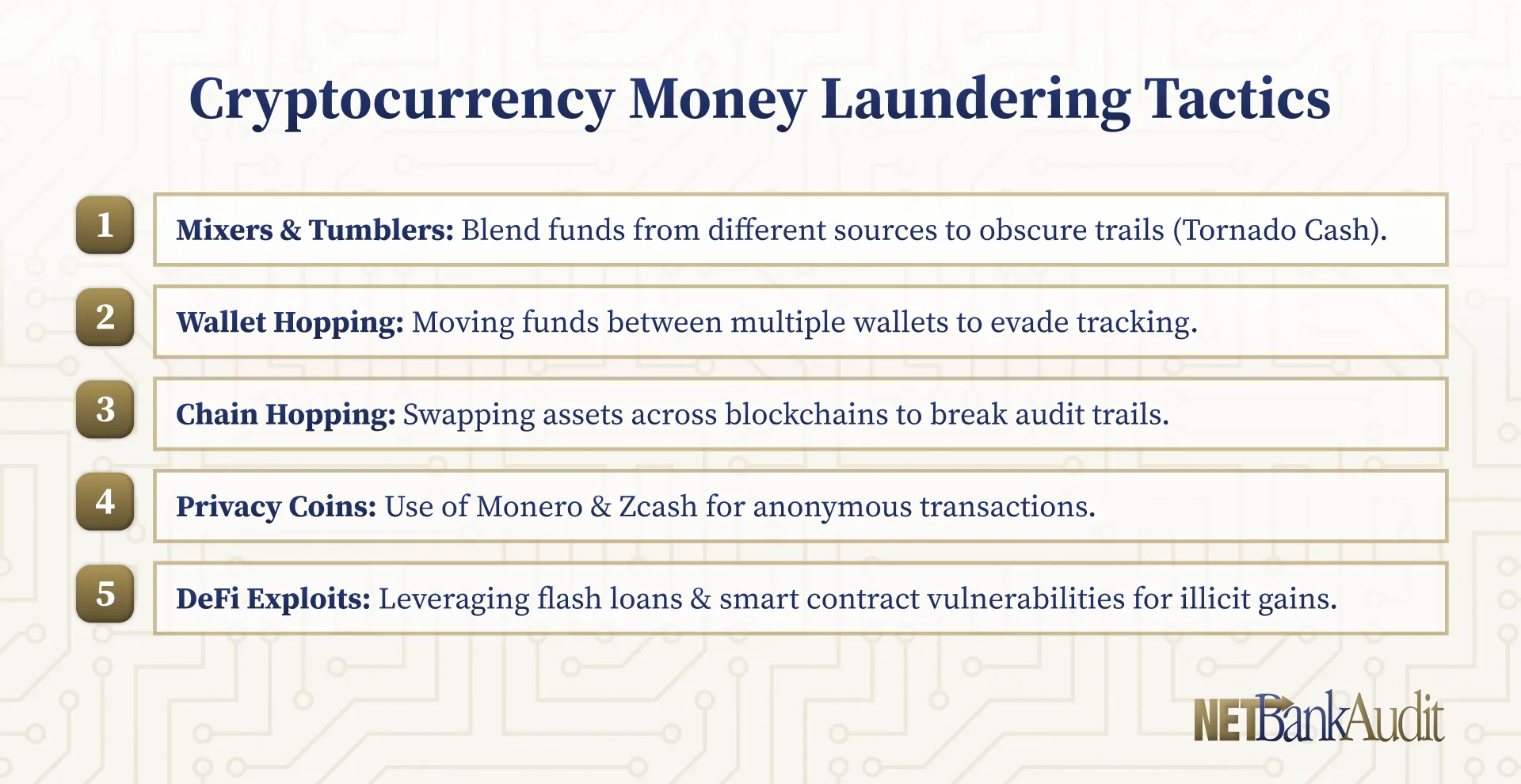
.webp)




.webp)
%20(1).webp)

.webp)










.webp)
.webp)

.webp)
.webp)
.webp)
.webp)
.webp)
.webp)
%201.svg)